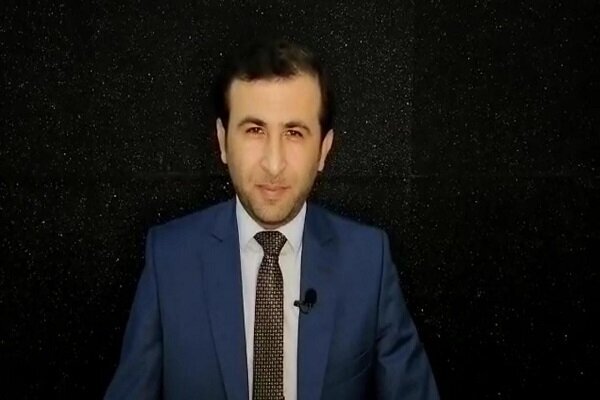UAE wants to open economic route with the West through Israeli gate: Lebanese analyst

TEHRAN – Khalil Nasrallah, a Lebanese analyst, believes that the United Arab Emirates (UAE) and Saudi Arabia are planning to establish an economic route to expand trade ties with the West through “the Israeli gate”.
On August 13, the Emirates and the Zionist regime reached an accord that will lead to the full normalization of diplomatic relations between the two sides.
The deal came after a phone call between United States President Donald Trump, Israeli Prime Minister Benjamin Netanyahu, and Sheikh Mohammed bin Zayed Al Nahyan, the crown prince of Abu Dhabi.
Under the agreement, which is called the Abraham accord, Israel is supposed to suspend the annexation of parts of the occupied West Bank. However, just hours after the announcement, Benjamin Netanyahu stated that he is still committed to the annexation plan.
The move sparked a bitter row in Arab countries as well as the Islamic world, where some Arab figures criticized it harshly.
"With this decision, the Emirates is not just betraying the Palestinian people, but all Arabs, and even their own people," says Iyad Naser, secretary-general of the Fatah movement in the southern Gaza Strip.
Leader of the Islamic Revolution Ayatollah Sayyed Ali Khamenei on Tuesday described the UAE move as a "betrayal" to the Muslim world and regional nations, saying the treason would not last long while such shame will taint the UAE forever.
"The Emirates and Saudi Arabia want to open an economic route for exchange of goods and expand trade with the West through the Israeli gate," Nasrallah tells the Tehran Times.
“The normalization of ties between the UAE and the Zionist regime is not surprising. It was all a matter of timing,” according to Nasrallah.
He adds, "It should be noted that the U.S. announced the normalization as a victory for Donald Trump. This matter is supposed to serve Trump and Benjamin Netanyahu as well."
The analyst underlines that Israel has deep-rooted relations with some leaders in Arab countries which came to power through American-Israeli support.
"In certain Arab countries in which generals have taken the helm with Netanyahu's help or those who have allied with him are trying to score a victory on this point," he notes.
Pointing to the statement of Ayatollah Khamenei, who said on Tuesday that "the treason would not last long, but the taint of shame will remain with the UAE," Nasrallah says, "In the long run, it will affect the region."
Regarding the importance of the Palestinian cause among Arab leaders, the Lebanese researcher says, "Most (Persian) Gulf Arab states, despite their statements, have set the Palestinian issue aside and therefore they want to establish an economic and political opening with the Zionist regime."
According to Nasrallah, the normalization will lead to very dangerous consequences, and the Emiratis will not benefit from it.
"Also, the normalization will neither serve the Saudis' interests nor the Bahrainis'. On the contrary, it will complicate matters in the region,” Nasrallah predicts.
Turning to what is going on in Lebanon, Syria, and Iraq, he points to attempts to create a greater type of blockade against these three countries.
"Therefore, we can talk about other dimensions of the issue," he says. "In fact, the normalization is a betrayal of the Palestinian cause. It shows that these countries were not serious about the Palestine issue. They were just looking for their own narrow interests."
Regarding the United Arab Emirates' approaches towards problems in West Asia, the Lebanese analyst believes that Abu Dhabi is spearheading the move to open the horizon to the Israelis.
Regarding the attempt by Sudan to normalize ties with Israel, Nasrallah thinks that the Emirates is behind the change of Sudanese position.
"It came due to efforts by the Emiratis. They also have an obvious role in developments in south Yemen," according to Nasrallah. "Consequently, they took upon themselves the mission of normalizing ties with the Zionist regime."
"In the end, the resistance front and the countries that will not accept the sale of the Palestinian cause will remain as guarantors of resistance in the region," he underlines.
Nasrallah adds that the Palestinians' position is very important. "As they stick to their cause, no one has the right to act on this issue more than the Palestinians themselves and resistance forces."
